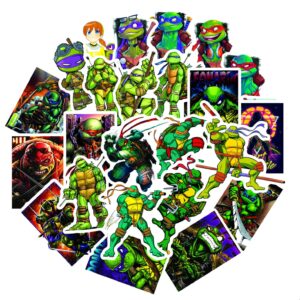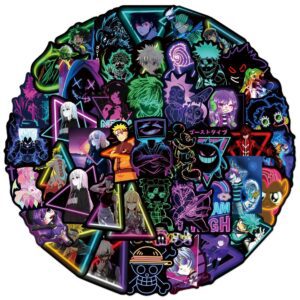In a significant development in the ongoing debate over AI ethics and intellectual property rights, a group of 17 prominent authors, including the acclaimed George R.R. Martin, has taken a decisive step by filing a class action lawsuit against OpenAI. The lawsuit alleges that OpenAI utilized their literary works without authorization for training its generative AI chatbot, ChatGPT. This action has been initiated with the support of The Authors Guild, an advocacy organization, and reflects growing concerns about the potential erosion of authorship rights in an era of rapidly advancing artificial intelligence.
The Authors Guild’s Mission
The Authors Guild, representing the interests of authors across various genres, has taken a leading role in organizing this legal battle. The organization contends that generative AI, such as ChatGPT, poses a substantial threat to the livelihood of authors. They argue that using copyrighted books as the foundation for commercial AI systems without obtaining proper permissions or providing compensation constitutes a profound injustice and danger.
Maya Shanbhag Lang, President of The Authors Guild, firmly states, “We are here to fight.” With a membership of nearly 14,000 diverse and passionate writers and a formidable legal team experienced in copyright law, The Authors Guild is committed to upholding the rights of authors in this digital age.
The Roster of Complainants
The lawsuit boasts an impressive list of authors who have joined forces in their legal pursuit. Notable names include David Baldacci, Mary Bly, Michael Connelly, Sylvia Day, Jonathan Franzen, John Grisham, Elin Hilderbrand, Christina Baker Kline, Maya Shanbhag Lang, Victor LaValle, George R.R. Martin, Jodi Picoult, Douglas Preston, Roxana Robinson, George Saunders, Scott Turow, and Rachel Vail.
Allegations Against OpenAI
The heart of the lawsuit centers on OpenAI’s alleged unauthorized use of copyrighted material for AI training. The complaint specifically accuses OpenAI of sourcing “text from books copied from pirate sites” to train its AI models, including GPT 3.5 and GPT 4. The lawsuit underscores the indiscriminate web scraping practices employed by AI companies, highlighting OpenAI’s past efforts to filter out offensive material through a separate AI system.
Shifting Responses of ChatGPT
The lawsuit also points to evolving behavior in ChatGPT’s responses to requests for citations from copyrighted books. It notes that while ChatGPT initially demonstrated a high level of accuracy in citing these sources, it has recently started declining such prompts. This shift in behavior raises suspicions that copyrighted content may still be a part of ChatGPT’s training data. The suit further highlights OpenAI’s acknowledgment that copyrighted material is present in its training data, as conveyed in a statement to the Patent and Trademark Office.
AI Emulating Real Authors
ChatGPT’s remarkable ability to mimic the writing styles of real authors is not lost on the complainants. The lawsuit showcases instances where ChatGPT has successfully generated content in the style of specific authors, including George R.R. Martin.
Attempts to Generate Additional Works
The Authors Guild reveals an interesting attempt to “generate volumes 6 and 7 of plaintiff George RR Martin’s Game of Thrones series A Song of Ice and Fire” using OpenAI’s software. Although the project was removed from GitHub, its creator remains open to engagement with Martin’s representatives.
Identity Theft on a Grand Scale
The overarching claim put forth by The Authors Guild characterizes the use of fiction for AI training without authorization as “identity theft on a grand scale.” The lawsuit contends that true literary works are the result of authors dedicating their careers and lives to perfecting their craft, emphasizing that generative AI simply duplicates existing content without contributing a genuine human touch.
Authors’ Demands
Importantly, the group of authors is not advocating for the complete cessation of large language model development. Instead, they argue for the fundamental right of authors to determine if and how their works are utilized for AI training, emphasizing that compensation should accompany such usage.
Novelist Jonathan Franzen voices this sentiment, stating, “Authors should have the right to decide when their works are used to ‘train’ AI. If they choose to opt in, they should be appropriately compensated.”
A Different Approach: Licensing for AI Gaming
While some entities opt for legal action, others explore alternative avenues. Hidden Door, a gaming company, is taking a unique approach by licensing fictional worlds and writing styles from authors to generate multiplayer RPG adventures using their own AI system. Their inaugural project draws inspiration from the public domain work, The Wizard of Oz.
A Reminder of Past Legal Battles
The Authors Guild’s involvement in this lawsuit echoes past legal confrontations, such as their lawsuit against Google over book scanning for Google Book Search. Although Google ultimately prevailed in that case, it paved the way for digital book lending by libraries.
Awaiting OpenAI’s Response
The article has reached out to OpenAI for comment regarding the lawsuit’s allegations, particularly those related to the use of pirated copies of novels for GPT training. Updates will be provided if a response from OpenAI is received.
In a rapidly evolving landscape where AI and literature intersect, the legal battle initiated by these authors represents a pivotal moment in defining the boundaries of AI’s engagement with creative works and the protection of authors’ intellectual property rights.













